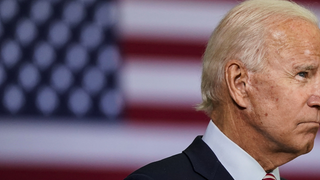It has been nearly five years since Joe Biden visited New Zealand. Speaking from Government House in Auckland, the then-vice-president quoted from one of his favourite poems – W. B. Yeats’ Easter, 1916 – declaring “All’s changed, changed utterly. A terrible beauty has been born”.
This stanza, recited frequently by Biden in speeches and remarks, has become his lyrical expression of the extent to which the world has changed over the years. But he’s also used it – as he did in Auckland in July 2016 – as a statement on the accelerating pace of change, an admonition of the dire nature of those disruptions, and a charge to respond in a principled and pragmatic fashion.
Nowhere is this more true than in the Pacific, where multiple and overlapping challenges threaten the security, prosperity, and stability of the region. The Biden administration has articulated five priorities for the region: responding to the coronavirus pandemic, prioritising climate change, reconceptualising trade, revitalising democracy, and dealing with a more aggressive China.
For any of this to succeed, Washington will need its regional allies and partners to inform its policy options, and will be looking for areas to cooperate and work jointly in the region.
It is abundantly clear that the scale of these challenges demands collective efforts, and so, in the Pacific, the United States will be keenly interested to engage with Wellington to understand how New Zealand sees these challenges, and how willing New Zealand will be to partner with the United States to tackle and address these challenges.
For any of this to succeed, Washington will need its regional allies and partners to inform its policy options, and will be looking for areas to cooperate and work jointly in the region.
America’s sharpening, bipartisan, and increasingly well-funded focus on the Pacific can be attributed to two strands. The first is a desire to help develop a positive regional agenda which supports the blue economy and sustainable development, climate protection, and multilateral engagement. This task has been made more urgent by the ongoing travails of the Pacific Islands Forum.
The second is the increasing realisation that it is necessary to push back against the more harmful aspects of Beijing’s enlarged regional presence, including its attempts to interfere in other nations’ domestic debates, silence their foreign critics, destroy large areas of marine life in the Pacific, attack fishermen from multiple countries, turn trade into a tool of political coercion, and export the technologies of its surveillance state to other aspiring autocrats.
The confluence of changing power dynamics in the Pacific, and an American administration that sees competition between democratic and autocratic states as the defining feature of geopolitics, means that there is growing interest in Washington over New Zealand’s role in the region.
This marks a notable change from the past, and a well-deserved recognition of the role New Zealand plays among the Pacific Island nations. Now that the importance of the region – including the Pacific Island nations – is getting proper attention and weight, the policy community is asking where New Zealand can add value, what capabilities are available (cultural, economic, diplomatic, development, as well as security), and how to combine efforts effectively.
The growing alignment between Washington and Wellington will likely prove both superficial and fleeting if it does not reckon more assertively with the positive and negative dynamics driving the region.
From combating climate change to countering violent extremism online to opposing economic coercion to safeguarding democratic institutions, there is growing alignment between Washington and Wellington. But, that alignment will likely prove both superficial and fleeting if it does not reckon more assertively with the positive and negative dynamics driving the region. That means redoubling efforts to promote a positive agenda in the region that is inclusive and sustainable.
And it just as surely means working to prevent the emergence of a regional order where an increasingly authoritarian Beijing intimidates its neighbours and attempts to buy political compliance – or at least acquiescence – with economic security.
Joe Biden assumed the presidency more committed to diplomacy and more international in outlook than any US president in the last three decades. He brings decades of experience in international diplomacy, a deep-seated commitment to supporting the rules-based order, and a strong conviction that the defining feature of his presidency is proving that democracy can still work.
At the heart of this is his desire to work with countries who share a similar set of commitments. With so much of Washington’s attention now squarely focused on the Pacific, New Zealand has an opportunity to not only reinforce those instincts, but to help set the agenda.
Whether devising a coherent strategy for co-operation with the Pacific Island states, increasing the aid, development, and security assistance to the region, or ensuring that it remains as free from economic coercion and political corruption as possible, the moment is right for the U.S. and New Zealand to work together on these challenges.






